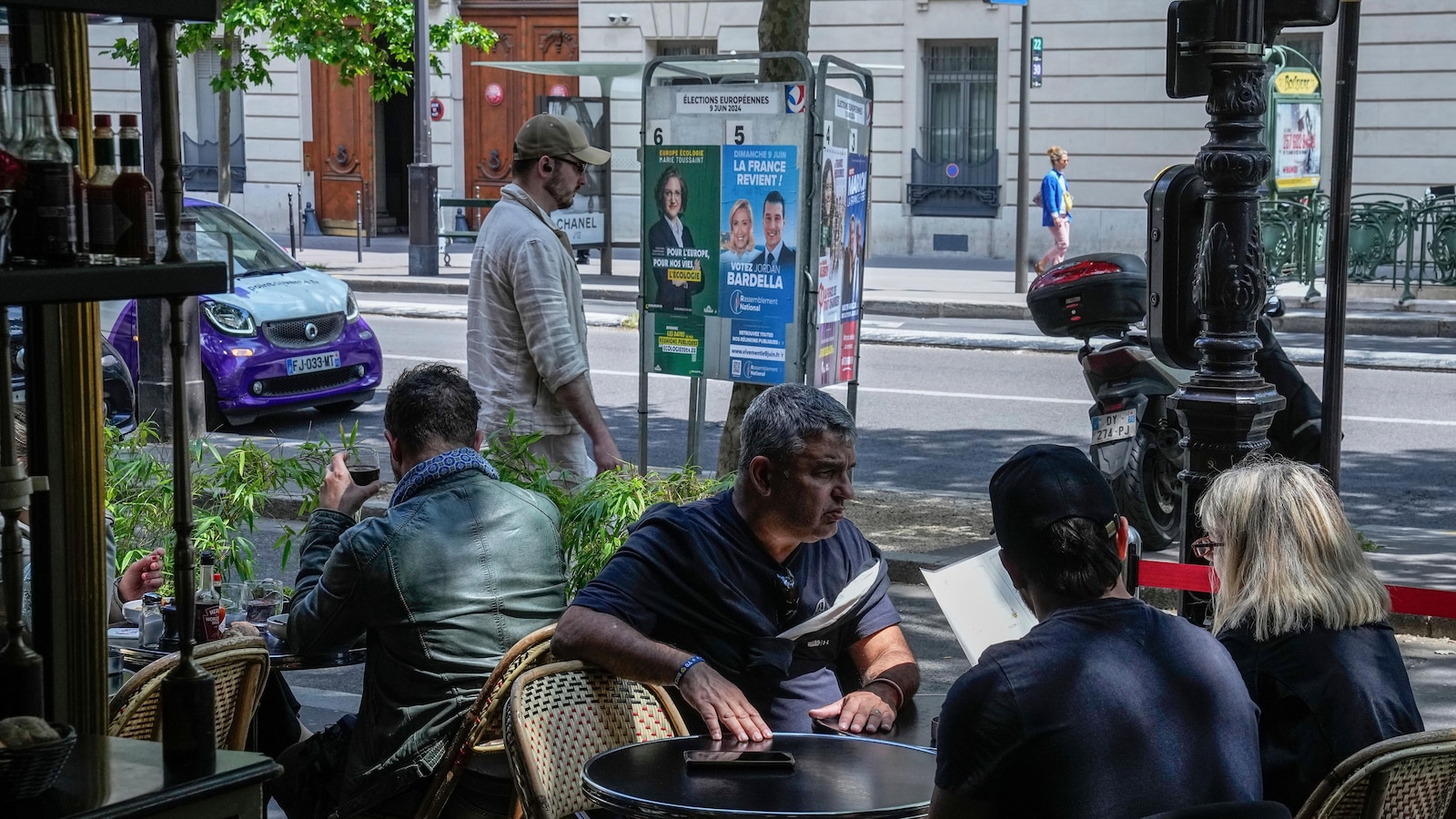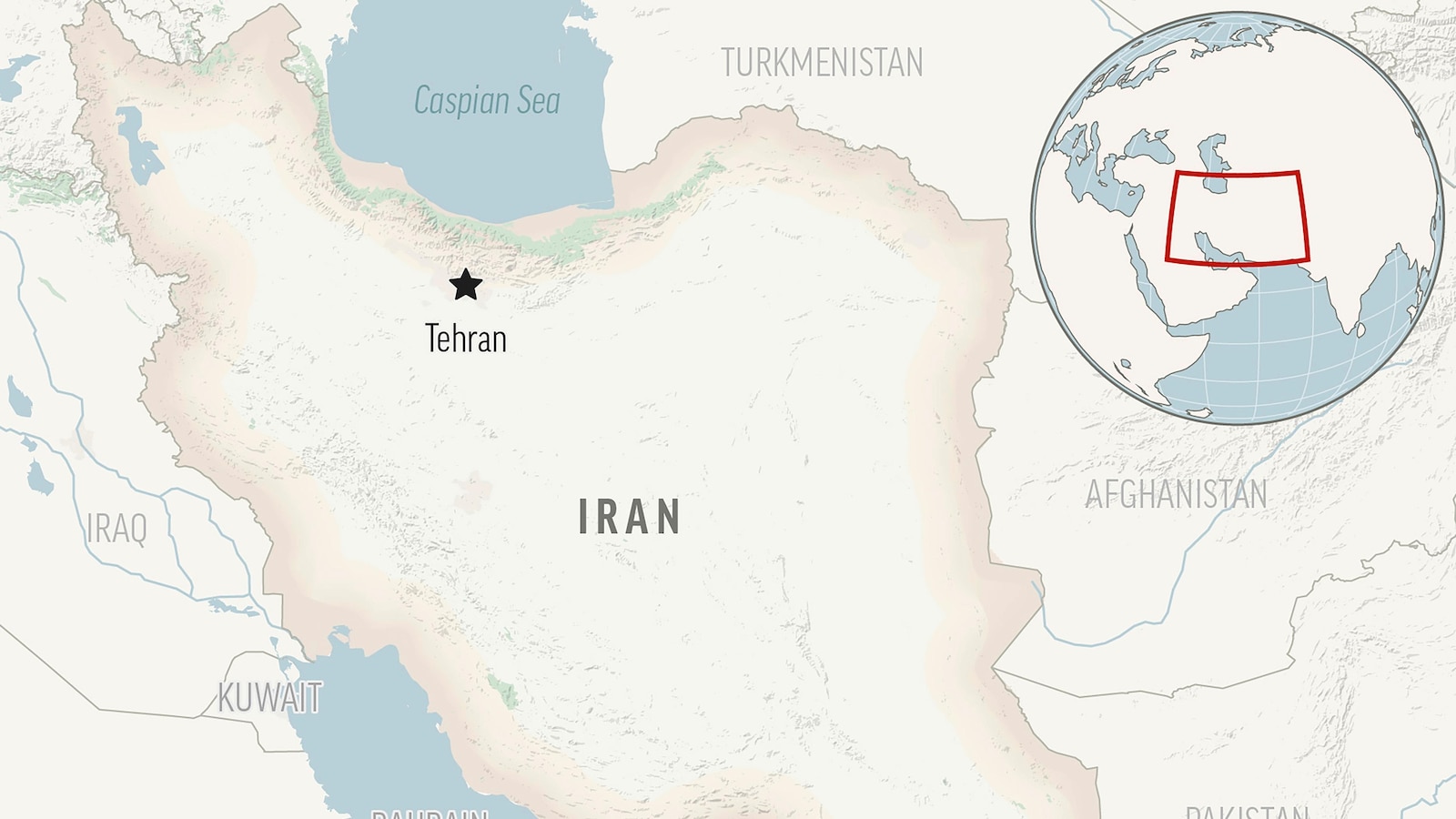
BRUSSELS — It’s easy to get overwhelmed by the EU elections. Voters are casting ballots in two dozen languages in 27 countries with scores of different campaign issues.
So here’s a look at some key places to watch in the June 6-9 elections for a new European Parliament.
Long-serving Hungarian Prime Minister Viktor Orbán is expected to extend his party’s nearly 15-year streak of election victories when the Central European country votes in European Parliament elections on Sunday, but is facing one of the most formidable challenges of his career from a former ally.
Orbán’s right-wing populist Fidesz party has taken more than 50% of the vote in the last three EU elections, and looks poised to take the most votes again this year. But a new opposition force, headed by a former Fidesz insider turned Orbán critic, has in a matter of weeks grown to become Hungary’s largest opposition party, and will likely cause Fidesz to lose at least one seat in the parliament.
Péter Magyar, a 43-year-old lawyer who was once married to Hungary’s former justice minister and Orbán ally Judit Varga, has shot to prominence since February on his public accusations of corruption and mismanagement within Orbán’s government.
Magyar’s party, Respect and Freedom (TISZA), has presented itself as a more centrist alternative to Orbán’s brand of illiberal populism, and is likely to gain several seats in the EU legislature. It has also capitalized on an economic crisis and disaffection with Hungary’s traditional opposition parties to siphon away much of their support.
Still, the social democratic Democratic Coalition, as well as the liberal party Momentum, could retain some of their seats, while the far-right Our Homeland party may send its first-ever delegate to Brussels after the Sunday vote.
Orbán has cast the election as an existential struggle between war and peace, telling voters that casting their ballots for his opposition would draw Hungary directly into the war in neighboring Ukraine and precipitate a global armed conflict. He has been in power since 2010.
Premier Giorgia Meloni’s Brothers of Italy party, which has neo-fascist roots, is forecast to sharply expand its number of seats in the European Parliament from seven in the last election, which could extend her influence in the EU.
Her pro-Ukraine and Israel policies have proven reassuring to centrist American and European allies, but she is leading culture wars at home that preserve her far-right credentials.
In Italy, the vote is not expected to destabilize the government, even if Meloni’s advantage will be at the expense of her partners in the governing coalition, the populist, anti-migrant right-wing Lega, led by Matteo Salvini, and the center-right Forza Italia, led by Foreign Minister Antonio Tajani.
Polling data forecasts that Brothers of Italy will get about a quarter of the vote, on par with the results of the 2022 national elections but well ahead of the last European parliamentary vote in 2019. The center-left Democratic Party is polling to come in second, followed by the opposition 5-Star Movement.
Italians ages 18 and over are eligible to cast ballots to elect 76 European parliamentary seats over two days, on June 8-9.
French far-right leader Marine Le Pen and the anti-immigration, nationalist ideas she has long championed are expected to be big winners in the EU elections.
Pollsters expect her National Rally party to win the most of France’s 81 seats, well ahead of President Emmanuel Macron’s moderate pro-business party.
The National Rally’s lead European Parliament candidate, Jordan Bardella, promises to limit free movement of migrants within the EU’s open borders and dial back EU climate rules. The party no longer wants to leave the EU and the euro, but to weaken it from within.
Many French voters will use the EU election to express dissatisfaction with Macron’s management of the economy, farming rules, or security. That could hurt him as he tries to lead Europe-wide efforts to defend Ukraine and boost the EU’s own defenses and industry.
On the left, polls show a surprising resurgence of France’s Socialist Party behind lead candidate Raphaël Glucksmann, who pledges a more ambitious climate policy and protections for European businesses and workers. Some left-wing voters are frustrated with the staunch pro-Palestinian stance of the influential far-left France Unbowed party. France has the largest Jewish community in Europe, as well as one of the largest Muslim populations, and the Israel-Hamas war has been a flashpoint in the election campaign.
In Germany, which will have the largest number of the new European Parliament’s 720 seats at 96, the three parties in center-left Chancellor Olaf Scholz’s unpopular governing coalition risk being punished by voters because of persistent squabbling and a weak economy.
The mainstream center-right opposition hopes to benefit and maintain its position as the strongest German party in Brussels as it looks ahead to a national election expected in the fall of next year.
But much attention will be on the performance of the far-right Alternative for Germany, which has enjoyed strong support over the past year but has been hit by a string of setbacks going into the European election. Among those are scandals surrounding its top two candidates for the EU legislature.
The party can expect to make gains on its performance in 2019, but perhaps not as much as it hopes.
Voters in Slovakia will cast ballots in the European Union parliamentary elections on Saturday just weeks after an attempt to assassinate populist Prime Minister Robert Fico.
Analysts expect the event that sent shockwaves through the nation of 5.4 million to be a boost for turnout, which was the lowest of the entire bloc in 2014 and 2019. It’s also predicted to increase the chances of Fico’s leftist Smer (Direction) party, the senior partner in the governing coalition, to win the vote.
Smer is in a close race against the main opposition Progressive Slovakia, a pro-Western liberal party. Fico’s group has been attacking the EU’s support for Ukraine, as well other policies on immigration, climate change and LGBTQ+ rights.
Two other political groups are far behind: the Republic, a far-right party that wants Slovakia out of NATO; and Hlas (or the Voice), another leftist coalition party previously led by Fico’s close ally Peter Pellegrini, who will be inaugurated as the country’s president next week.
Slovakia contests 15 seats in the election.
___
Follow the AP’s coverage of global elections at: https://apnews.com/hub/global-elections/
The European Parliament elections are fast approaching, and with the rise of populism and Euroscepticism across the continent, this year’s elections are more important than ever. While all eyes will be on the overall outcome of the elections, there are several key races that are particularly worth watching as they could have a significant impact on the future direction of the EU.
One of the most closely watched races is in France, where Marine Le Pen’s far-right National Rally party is expected to make significant gains. Le Pen, who ran for president in 2017, has been a vocal critic of the EU and has called for France to leave the bloc. A strong showing by her party in the European Parliament elections could embolden other Eurosceptic parties across Europe and potentially shift the balance of power within the EU.
In Italy, all eyes will be on the race between Matteo Salvini’s far-right League party and the center-left Democratic Party. Salvini, who serves as Italy’s deputy prime minister and interior minister, has been a vocal critic of the EU’s immigration policies and has called for a more nationalist approach to governance. A strong showing by Salvini’s party could further destabilize the EU and put pressure on other member states to adopt similar policies.
In Germany, the race to watch is between Angela Merkel’s Christian Democratic Union and the far-right Alternative for Germany party. Merkel, who has been a stalwart supporter of the EU, is facing increasing pressure from within her own party to take a tougher stance on immigration and border security. A strong showing by the Alternative for Germany party could further weaken Merkel’s position and potentially lead to a shift in Germany’s approach to EU governance.
In Hungary, Prime Minister Viktor Orban’s Fidesz party is expected to dominate the elections. Orban, who has been a vocal critic of the EU’s immigration policies and has been accused of undermining democratic institutions in Hungary, is likely to use a strong showing in the European Parliament elections to further consolidate his power at home and push for a more nationalist approach to governance within the EU.
Overall, the outcome of these key races will have far-reaching implications for the future of the EU. A strong showing by far-right and Eurosceptic parties could further weaken the bloc and lead to increased internal divisions. On the other hand, a strong showing by pro-EU parties could help to strengthen the bloc and push for greater integration and cooperation among member states. As such, these key races are definitely worth watching as they could shape the future of Europe for years to come.


